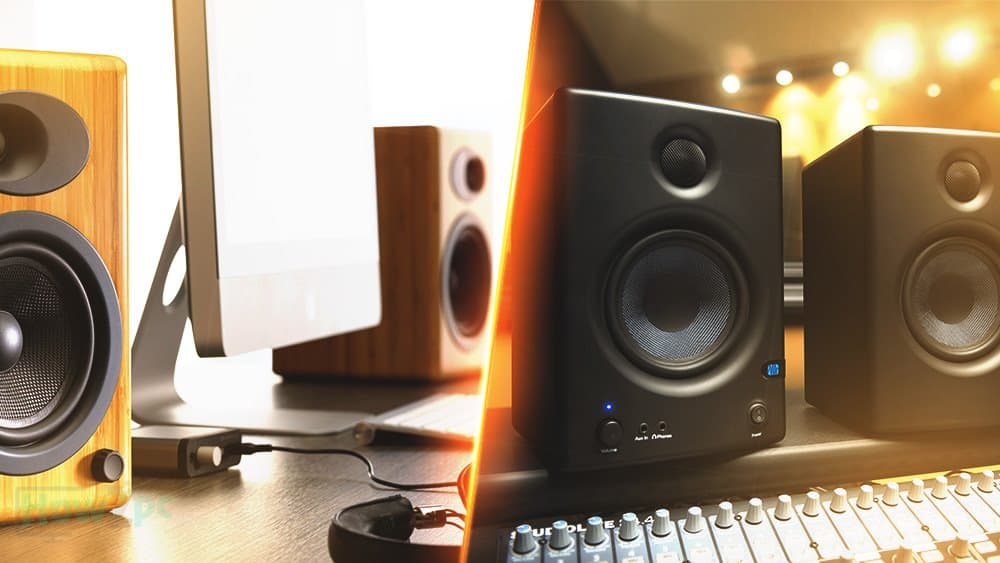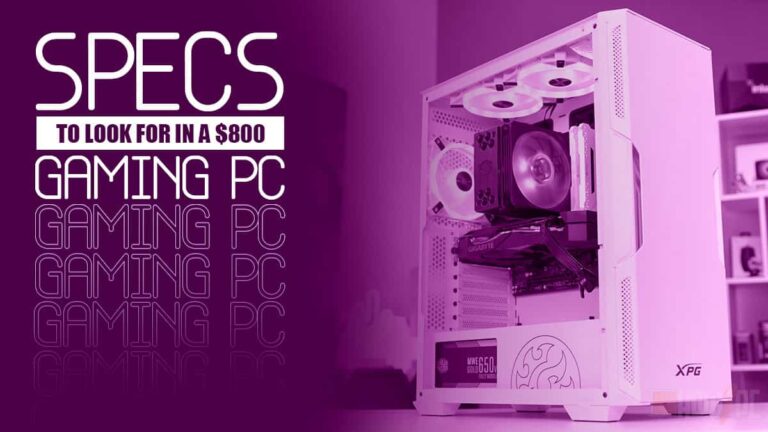If you are confused between bookshelf speakers and studio monitors we do not blame you. These two speakers have such a similar appearance that differentiating between them is rather impossible based on just looks.
The industry jargon that is used for the speakers does not help either. Today we see many wrongly labeled speakers and these two terms are often interchangeably used for speakers that do not belong in the respective category.
Although being look-alikes and resembling each other in appearance the bookshelf speakers and studio speakers are entirely different from one another and represent their category. The differences that we see in these speakers are mainly because these speakers are meant to be used for different applications.
So what might be the differences you might be wondering, well lucky you as we in this list will elaborately explain all the differences that are present between bookshelf speakers and studio monitors. Before we take a crack at the differences, let’s just address one question that is always repeated whenever this topic is discussed.
RELATED:
Best Bookshelf Speakers Under 200 Dollars – Our Recommendations
16 Computer Speakers Under $100
Everything You Need to Know About Bookshelf Speakers
Bookshelf vs Floorstanding Speakers: Which One to Buy?
Soundbar vs Bookshelf Speakers
Can I Use Bookshelf Speakers as Studio Monitors?
The short and the simple answer to this is no you cannot use bookshelf speakers as studio monitors. For the folks looking for an explanation, the reason bookshelf speakers cannot be used as studio monitors because they have a colored frequency response.
Since Studio monitors are used for professional-grade music work like mixing having a flat frequency response without any variation is a must. Any colored frequency response is not deemed suitable for this purpose. Although being the primary factor it is not the only actor and to find out more proceed to the next segment where we will elaborate on the differences between bookshelf speakers and studio monitor.
Bookshelf Speakers vs Studio Monitors: How Do They Differ?
There are many factors that play a part in differentiating bookshelf speakers and studio monitors.
Sound Profile
When buying any speakers the type of sound they produce is a major factor in the buying decision. For bookshelf speakers and studio monitors, sound also plays a vital role because they both have different sound profiles.
Studio monitors have a flat and neutral sound. All the frequencies are linear without any variations or peaks. This is the fundamental of any studio monitor and a speaker is not considered a monitor until they have accurate sound reproduction. The flat sound signature is considered boring for media consumption or music listening.
Bookshelf speakers on the other hand are not bound to have a flat sound. Most manufacturers elevate the sound frequencies on bookshelf speakers for a more exciting and enjoyable listening experience. The oomph that you get in the sound with bookshelf speakers is not present in studio monitors. The colored sound is also deemed more immersive and keeps the user engaged for a longer time.
Sound Projection and Loudness
In terms of projection and loudness, these speakers also differ. Studio monitors have a short sound dispersion range and therefore are only suitable for enclosed small rooms. Their loudness is also lacking when compared with bookshelf speakers and rectifying it by positioning the studio monitors closer is also not possible because when placed right next to you they suffer from the hissing of the tweeter.
Bookshelf speakers, on the other hand, embody loud projection. Since these speakers are primarily made for home listening and not professional audio reproduction these have large drivers that disperse sound in all directions. Due to the large drivers, bookshelf speakers also produce more volume compared to studio monitors.
Connectivity
This is another area where these speakers differ. Studio monitors are made for professional-grade audio work so they require additional connections aswell. The common trait of studio monitors is having balanced ports for connectivity. As for the ports they include RCA, XLR, or quarter-inch jack.
On bookshelf speakers, the connectivity situation is completely different. Most bookshelf speakers are passive and have binding ports or banana plugs for connectivity.
Features
Studio monitors generally have a lot more features baked into them when compared with bookshelf speakers. These features may include dedicated frequency adjustment knobs, dedicated switches, etc.
On the contrary, bookshelf speakers are usually devoid of any such thing. They are plain rectangular boxes with drivers.
Budget
The last factor we want to discuss is budget. Studio monitors and bookshelf speakers come in at different prices with the former being much more expensive.
In the audio market today the term studio monitor requires a premium over the other speakers. For nearly the same price you can either get entry-level studio monitors or high-end bookshelf speakers.
This is big because bookshelf speakers easily beat monitors when it comes to price to performance. This fact alone can bring a perspective change and influence the decision of the buyer.
YOU MAY ALSO LIKE:
2.1 vs 5.1 vs 7.1 Surround Sound Speakers
How to Set Up Speakers on PC
How to Connect a Bluetooth Speaker to a Computer
External Computer Speakers Not Working in Windows 10? Try These Fixes!
How to Make Computer Speakers Louder?
Why You Should Choose Bookshelf Speakers?
Let us give you our perspective on this matter in regard to the application of bookshelf speakers. We believe you should choose bookshelf speakers if your primary use case will be home entertainment.
Home entertainment here refers to media consumption, music, movies, and more of these similar activities. For these activities bookshelf, speakers shine because they provide a lively sound, engaging and exciting sound. The fact that bookshelf speakers have a wider sound throw also reinforced this claim.
Why You Should Choose Studio Monitors?
This is pretty straightforward. If your speaker use involves professional audio reproduction or mixing then studio monitors are the way to go. These speakers are also the choice for sound engineers because of the flat sound signature. Due to the accurate sound of these speakers professionals are able to fine-tune other aspects of the audio.








